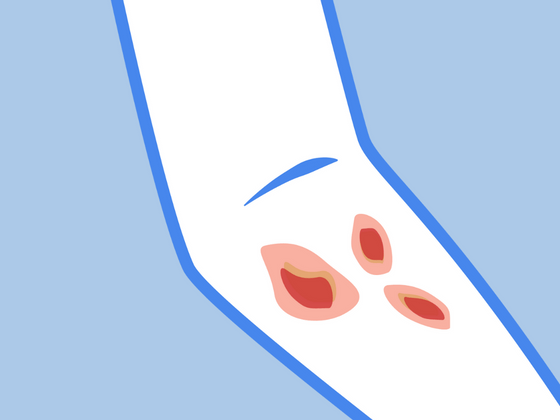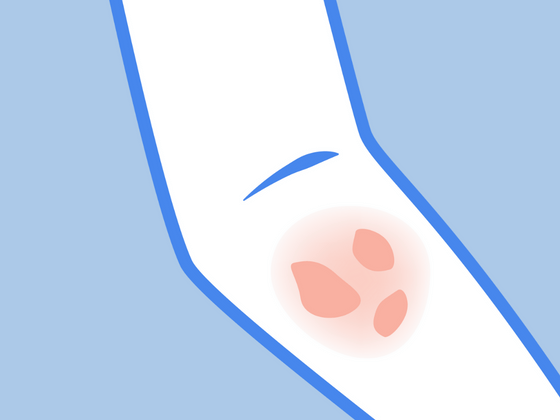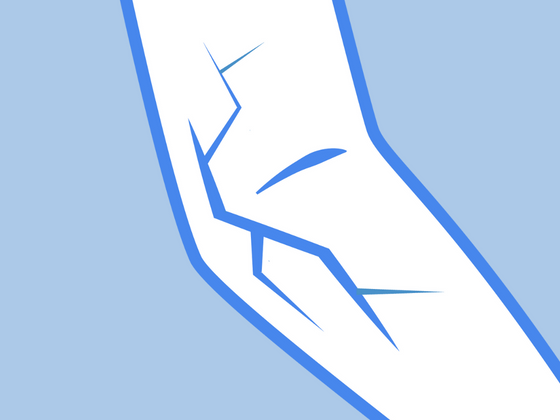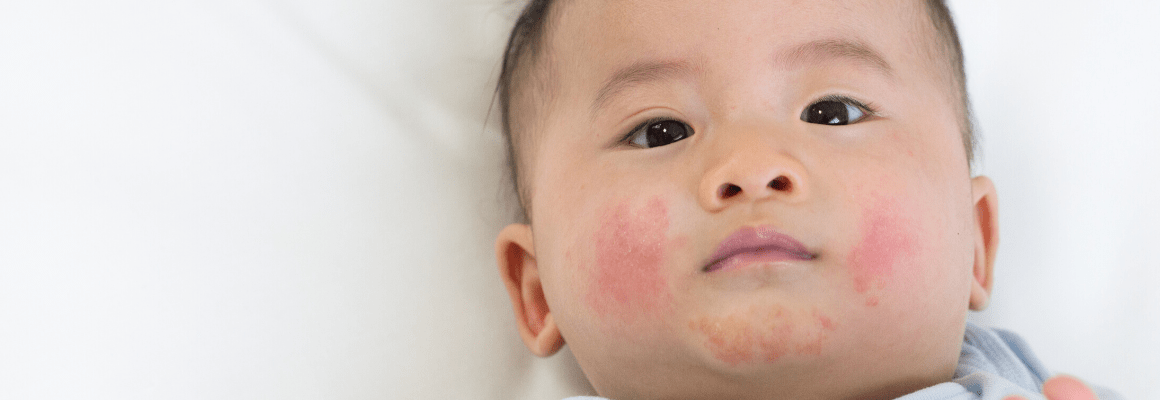Eczema is an uncomfortable but common skin disorder characterized by red, rough, and inflamed skin. Also known as dermatitis, scaling may cause the skin to look flaky, and in severe cases, fluid-filled blisters may form, which may crust or ooze.
Itchiness is a crucial factor accompanying eczema, often leading to the notorious ‘itch-scratch’ cycle. If intense scratching damages the skin, causing it to crack or bleed, viruses or bacteria may enter, and infection may result.
In this post, discover the various types of eczema infections and learn how you can protect your or your little one’s skin with eczema infection treatments.
If you believe you might be suffering from an eczema infection, please seek medical professional help immediately.
Common Eczema Infections
While eczema is not an infectious disease, the damage done to the skin can leave it vulnerable to bacteria, viruses, and fungi, making it more challenging to treat. Here are some common eczema infections to watch out for:
-
Bacterial infections: Staphylococcus aureus (Eczema with staph infection) is a bacterium that thrives on weepy or broken skin. Nearly everyone with atopic eczema will find this bacterium on their skin, even if there is no sign of infection. Infection with Staphylococcus aureus hinders healing by causing eczema to spread more quickly.
- Viral infections: When suffering from eczema, take extra care to avoid those with cold sores since the most common viruses for eczema sufferers are herpes simplex. This is a very contagious virus and may appear in the form of genital inflammation or conjunctivitis of the eye. In addition, because those with eczema have lower resistance to the virus, a more severe infection known as eczema herpeticum may result.
- Fungal infections: While fungal infections can occur in everyone, those suffering from eczema are more vulnerable. A typical example is Candida (“thrush”), a yeast infection that develops in warm moist areas of the skin, such as in the groin or a baby’s diaper area. Ringworm is another common source of fungal infection in eczema. Appearing in isolated patches, it often develops between the toes but can be found all over the body.
Although eczema is generally not contagious, these infections can be, which makes it extremely important to prevent scratching and reduce irritation.
Is My Eczema Infected?
If you think your skin is infected, be sure to see your doctor as soon as possible so that it can be treated. Signs of infection include:
- Burning and blistering
- White or yellow pus
- Fever or chills, with flu-like symptoms or swollen glands in the armpit, neck, and groin.
- Weepy skin with clear or yellow fluid
- Fatigue or aches
Natural Eczema Infection Treatment
While it is highly recommended to seek medical care in cases of severe infection, there are some great, natural remedies you can use to treat mild infections or to use alongside a physician’s care.
We suggest:
- Essential oils like tea tree oil, lavender oil, and manuka oil. We love this Organic Calendula Oil because you can apply it directly to sensitive, dry, or cracked skin.
- Herbal supplements for eczema flares.
- Natural soaps and creams with emollients. This Organic Manuka Skin Soothing Cream is a rich emollient that moisturizes and nourishes dry skin. Soft and creamy, it’s excellent for calming irritated skin. Plus, it's manuka oil and manuka honey contents offer anti-bacterial and anti-inflammatory properties.
- Soothing, gentle baths to help soothe itchiness. With antiseptic and detoxifying benefits, the Conqueror Oatmeal Bath uses wholesome ingredients to calm itchy, red, cracked skin to prevent scratching and infection.
Discover various other treatments to stop itching from eczema naturally.
Eczema Infection Prevention
The best way to prevent infection is to reduce eczema flares and avoid scratching.
To do this, we suggest trying wet or dry wrap therapy. Then, simply use a natural emollient and an eczema wrap or bandage to help penetrate the treatment for soothing long-term relief. Our bandages are made with eco-friendly TENCEL embedded with anti-inflammatory zinc to provide long-lasting comfort day or night.
Finally, consider changing your diet if you cannot avoid infection from natural treatments alone. Since food is often a big trigger for eczema flare-ups, you might want to try undergoing an elimination diet. This involves removing top allergens from your diet for a month and reintroducing them slowly to observe a reaction.
References:
https://www.medicalnewstoday.com/articles/319561.php#what-causes-infected-eczema
http://www.eczema.org/atopic-eczema
------------------

Bio: Laura is a contributor and content developer for The Eczema Company. She is in no way a medical professional. Her comments, suggestions, and reflections are not intended to replace any medical advice. Always seek the help of a medical professional before undertaking any diet or lifestyle changes.








